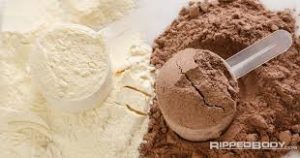 As an athlete, we all know the importance of eating sufficient protein but just in case you don’t, here goes:
As an athlete, we all know the importance of eating sufficient protein but just in case you don’t, here goes:
- Recovery and repair
- Improved satiety
- Better body composition
Theoretically, all three will help with performance, some through body composition improvements or allow you to be better prepared for your next session.
However, should you eat “real” protein aka food or supplements?
Firstly, it is worth noting that not all protein sources are created equal.
Some sources are not “complete” proteins – meaning they lack one or more essential amino acids.
To fully benefit from the recovery and repair process of protein ingestion you need all amino’s to be present in your diet.
The other consideration is the bioavailability of each protein, meaning:
The ability of our bodies to digest and absorb the protein you can consume.
Foods with higher bioavailabilities should be higher on the list of proteins to consume.
Bioavailability is measured on a scale – an example can be seen below:
- Whey protein – 100-159
- Whole egg – 100
- Egg white – 88
- Fish – 83
- Chicken – 79
- Rice – 74
- Wheat – 54
- Beans – 49
It is clear that whey protein (a supplement) comes out top.
Foods which are more fibrous or are made up of other macronutrients such as rice are obviously lower.
Now, as an endurance athlete, your protein requirements are NOT as high as a strength competitor or someone solely concerned with body composition, like a fitness model.
As such, I would say it is possible to get enough protein from food alone.
However, I generally recommend that the harder you train the more helpful you might find a protein supplement be.
Personally, I have one whey protein shake on days I train and sometimes more if I am trying to drop a little fat.
How much you have will depend on your training and objectives but hopefully, this email goes some way to clearing things up.
Jamie “full for longer” Leighton